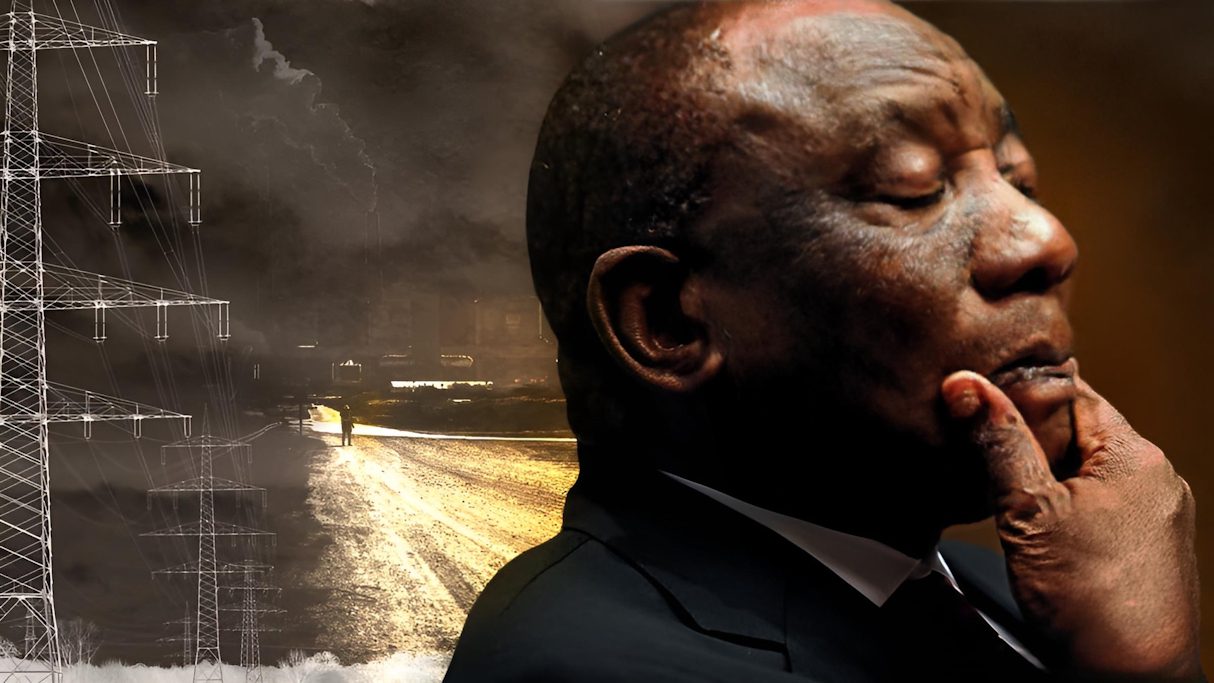South Africa’s government has blood on its hands. That may sound harsh, but when a ruling party’s corruption, neglect, and indifference cost tens of thousands of lives every year, moral responsibility cannot be shrugged off as mere incompetence. When the state fails so comprehensively that citizens die avoidable deaths in their homes, on the roads, in hospitals, and at the hands of criminals, it is not misfortune—it is complicity.
1. The roads that kill
In 2022 alone, 12,436 people lost their lives on South Africa’s roads. The causes are not mysteries: crumbling infrastructure, collapsed rail systems that force freight and commuters onto overburdened roads, unenforced traffic laws, and corruption in transport tenders. Some of these deaths represent the slow decay of a state that has stopped caring—avoidable tragedies caused by systemic neglect and political indifference.
2. Despair and the silent epidemic
Economic mismanagement, unemployment, and hopelessness feed another tragedy: suicide. South Africa’s suicide rate hovers around 11 per 100,000 people, translating to nearly 7,000 deaths each year. Mental-health services are scarce, especially in poorer provinces, and the government’s own reports acknowledge a severe shortage of psychologists, social workers, and facilities. Every statistic hides a personal collapse—a father without work, a student without hope. These are preventable losses in a country where leadership has abandoned the duty to provide opportunity and dignity.
3. Death by hospital corridor
Few stories capture the human cost of state failure like the Life Esidimeni scandal, where 144 psychiatric patients died after being transferred to unlicensed NGOs to “save money.” That was not an isolated event—it was a warning. Across the country, broken hospital equipment, medication shortages, and overworked staff result in thousands of avoidable deaths each year. The Health Systems Trust has documented persistent governance failures and missing funds in provincial departments. When corruption replaces compassion, hospitals become places where the poor go to die quietly.
4. Lights out, lives lost
Even electricity blackouts have turned deadly. Hospitals and clinics lose power during surgery, oxygen systems fail, and traffic lights go dark, causing fatal crashes. Small businesses collapse, deepening poverty and despair. The Eskom crisis is entirely man-made—the outcome of cadre deployment, sabotage, and resistance to reform. When governance failure kills in hospitals and homes alike, the line between neglect and manslaughter disappears.
5. Poisoned water, poisoned citizens
In 2023, at least 47 people died in the Hammanskraal cholera outbreak, traced directly to municipal neglect and tender corruption. Many towns live under similar threat from polluted rivers, raw-sewage leaks, and collapsing treatment plants. When corruption poisons the water that citizens drink, it ceases to be mismanagement—it becomes homicide by neglect.
6. Murder: South Africa’s national epidemic
Nowhere is the government’s moral bankruptcy clearer than in violent crime. In 2024, 26,232 South Africans were murdered—that’s 72 every day, or one every 20 minutes. Decades of failed policing, political interference, and resource mismanagement have crippled the SAPS. Conviction rates hover below 20%, meaning most killers walk free. The ANC’s refusal to professionalize law enforcement has made killing almost consequence-free. These are not random acts of violence; they are policy outcomes.
7. The forgotten farmers
Among the victims are South Africa’s farmers, often isolated and targeted in rural attacks. While numbers fluctuate, independent analysts estimate 60–70 farm murders annually, with hundreds more assaults and tortures. Yet these crimes are not treated as priority cases. When a state refuses to protect those who feed the nation, it betrays its most fundamental duty.
8. Hunger and malnutrition
Hunger kills silently. According to UNICEF, more than 27% of South African children are stunted by malnutrition—an indictment of systemic poverty and policy failure. Food security is collapsing not because the land is barren but because the state is corrupt, the economy stagnant, and local food systems are strangled by bureaucracy, crime, and policies that threaten private property rights and agricultural investment. Every malnourished child is another casualty of a government that spends on patronage instead of production.
9. Disasters waiting to happen
When floods, shack fires, or building collapses strike, the death toll is always magnified by state neglect. The KwaZulu-Natal floods of 2022 killed more than 400 people, many living in illegal settlements tolerated for political gain. The 2024 George building collapse claimed scores of workers after safety inspections were falsified for profit. These deaths are not acts of God—they are the predictable results of a government that ignores planning, enforcement, and accountability.
10. Gender violence and moral collapse
Perhaps nowhere is the rot deeper than in gender-based violence. In the year to March 2024, 5,578 women and 1,656 children were killed. That is not just crime—it is cultural decay tolerated by a state that preaches equality but fails to protect. The government boasts of awareness campaigns while neglecting shelters, prosecution, and the family values that once offered stability. A country that cannot safeguard its women and children has lost its soul.
The moral reckoning
The sum of these failures is staggering. Between murders, suicides, road deaths, medical negligence, malnutrition, and disasters, tens of thousands of South Africans die every year—many who would still be alive if the state had simply done its job. This is more than maladministration. It is moral collapse on a national scale.
The ANC may not hold a gun or drive the vehicle, but its corruption, mismanagement, and indifference have created the conditions in which citizens die. In law, this is called culpable homicide—the act of causing death through negligence. On a national level, it becomes mass homicide by neglect.
Enough is enough
If your family or employer acted with such disregard for life, you would hold them accountable. Yet, year after year, citizens are told to tolerate what no civilized society should. The social contract is broken; trust between people and state lies in ruins.
It is time for South Africans—especially in functioning regions like the Western Cape—to assert their right to self-determination. This is not rebellion; it is survival. Communities must reclaim the power to protect their own lives, manage their own safety, and govern with integrity. International law recognizes the right of peoples to self-government when the central authority fails to safeguard life and liberty. South Africa has reached that point.
The ANC’s legacy will not only be poverty and decay—it will be the countless gravestones of those who died because their government stopped caring. To call that anything less than mass murder is to deny the scale of human suffering inflicted by corruption and neglect.
Enough is enough. The time has come to take our destiny—and our safety—into our own hands.
Dr. Joan Swart has a PsyD Forensic Psychology, an MBA and a Masters in Military Studies. She is a director of CapeXit NPO.

